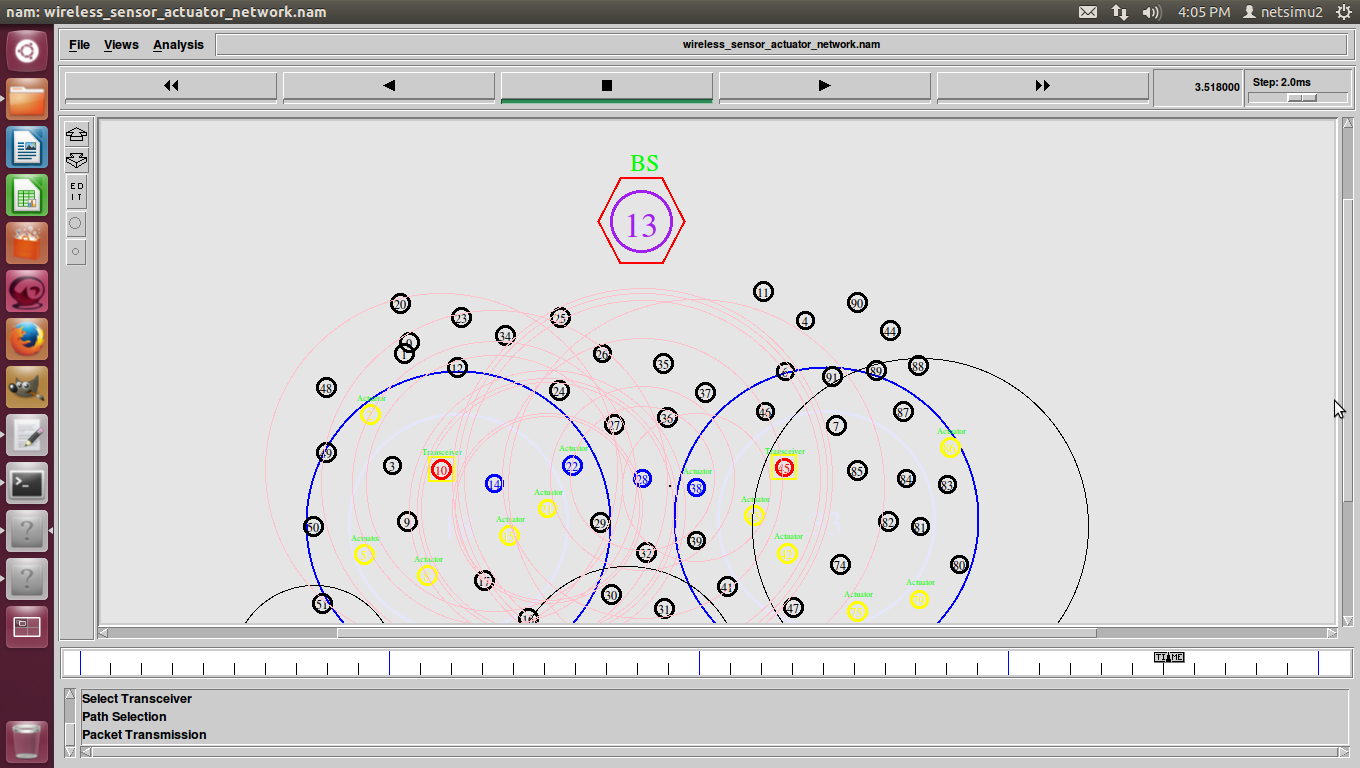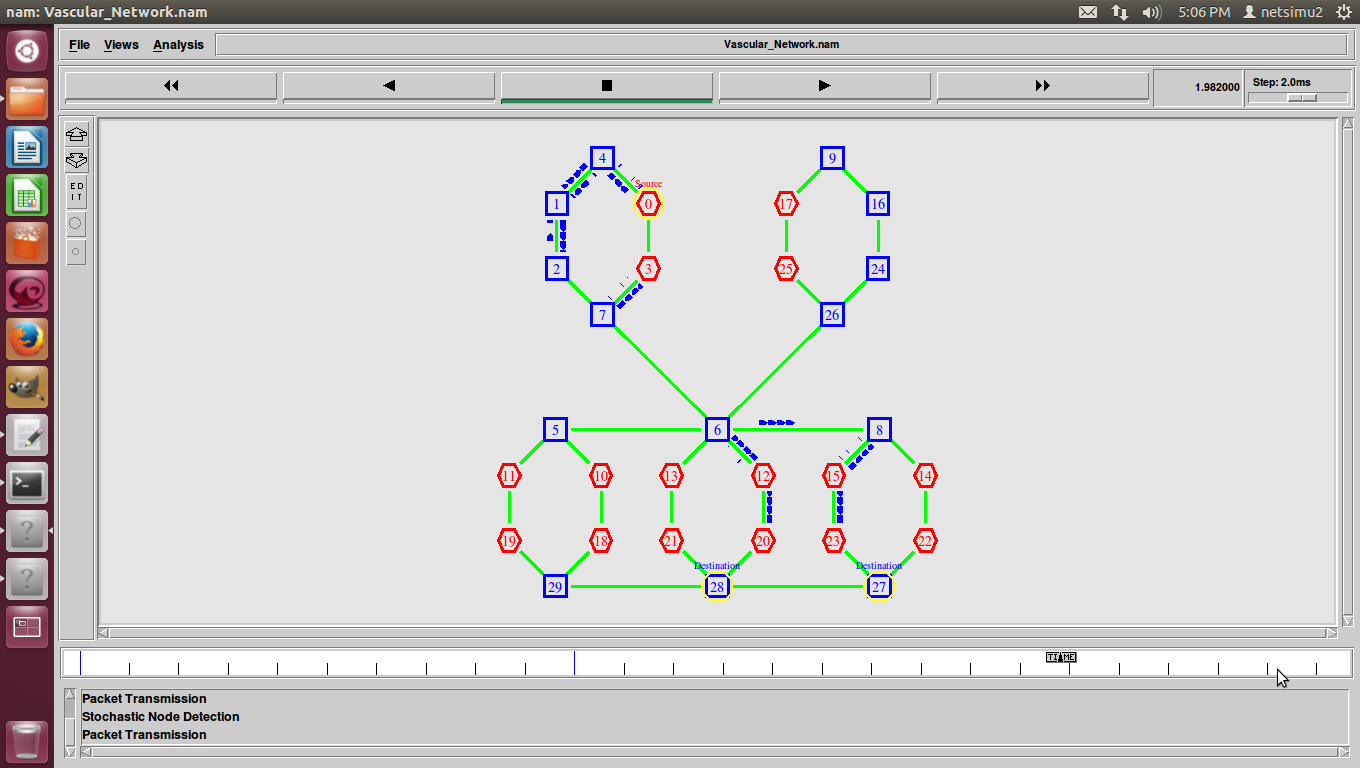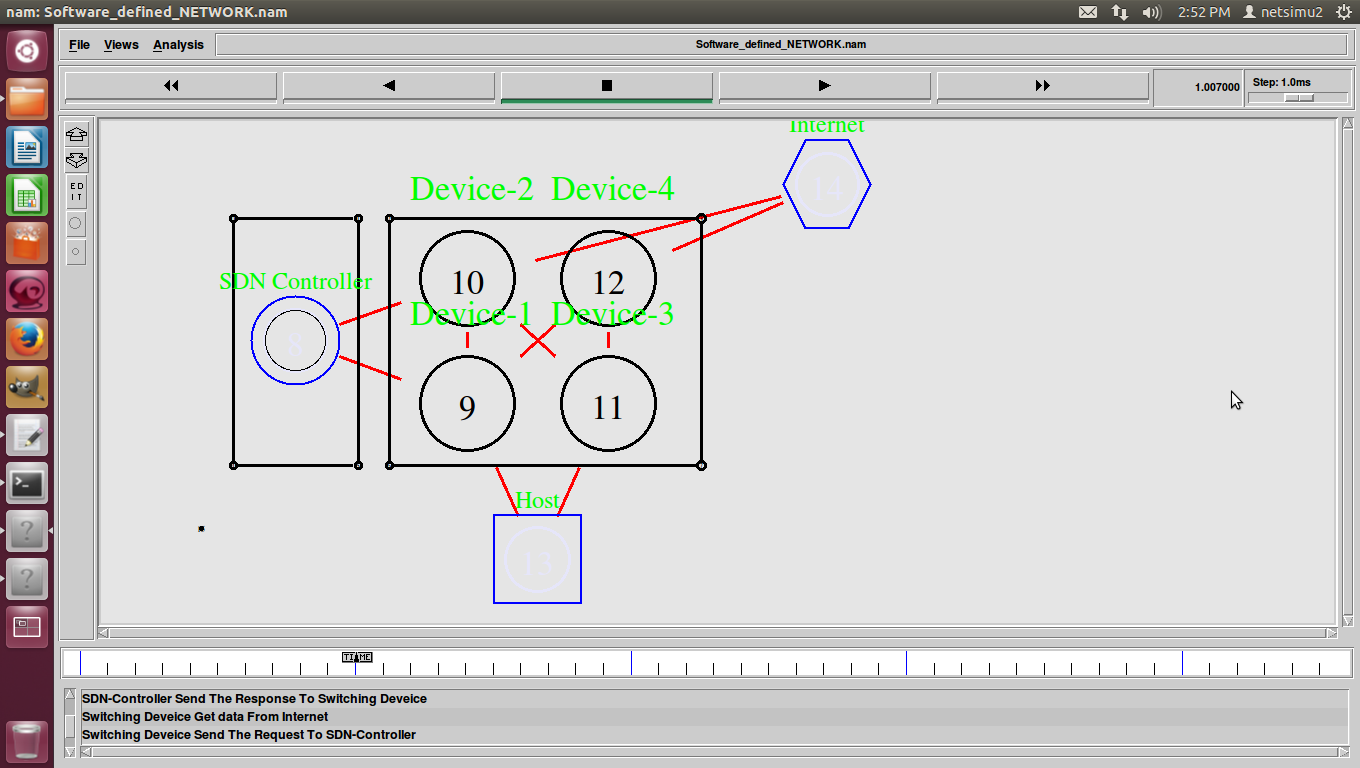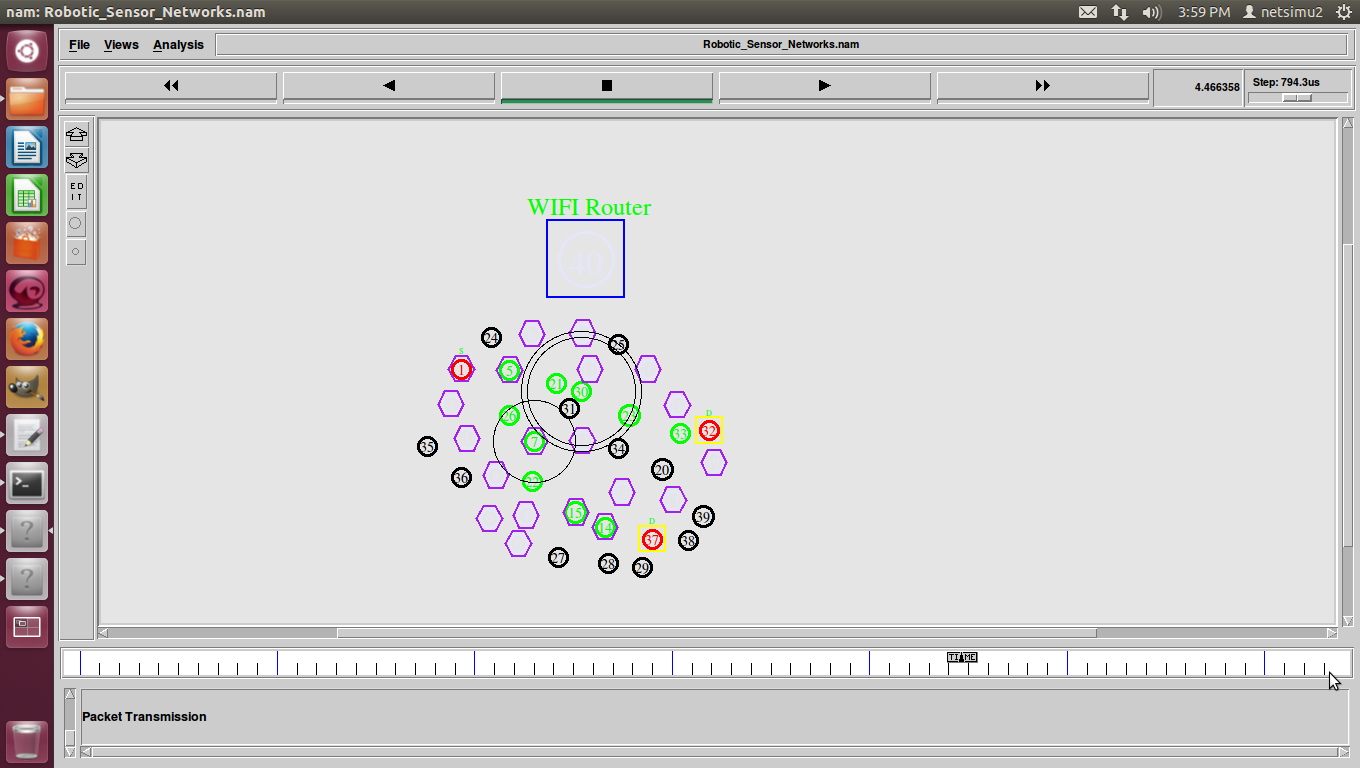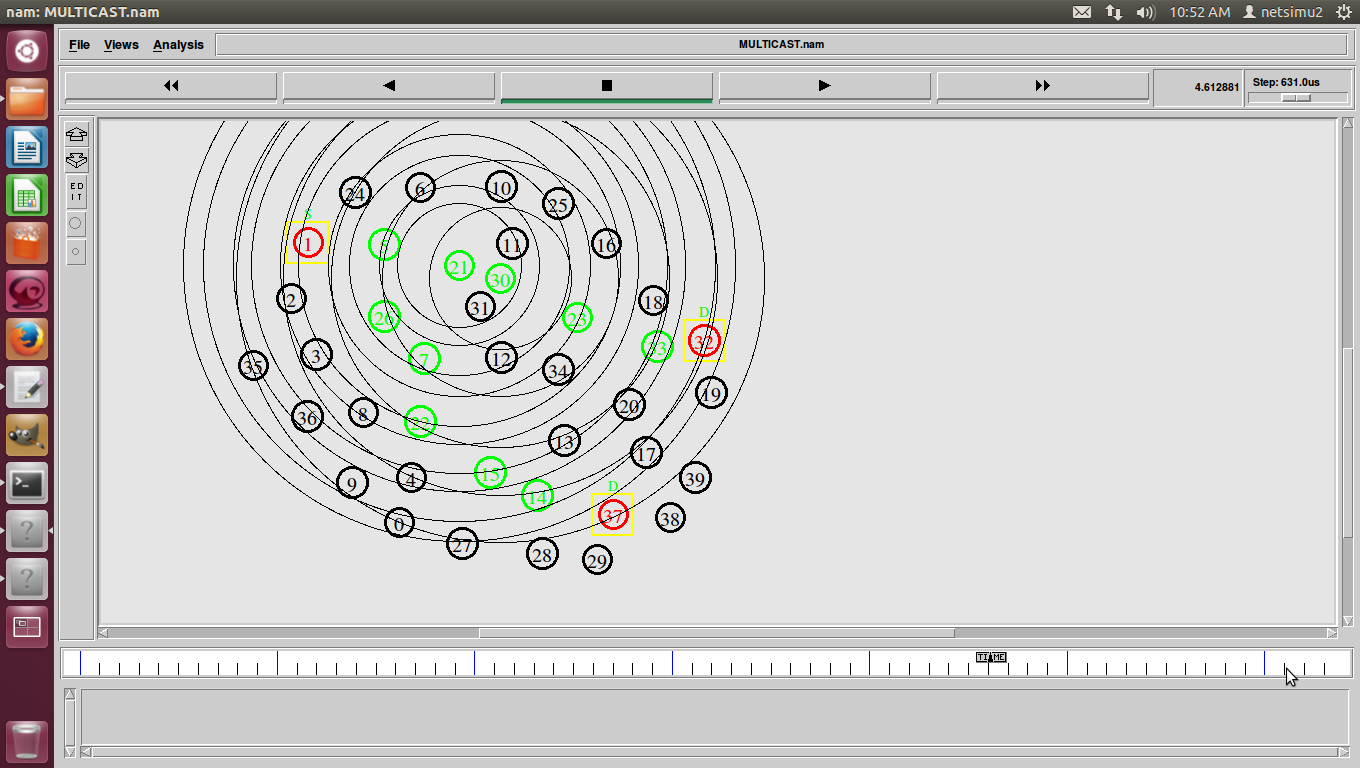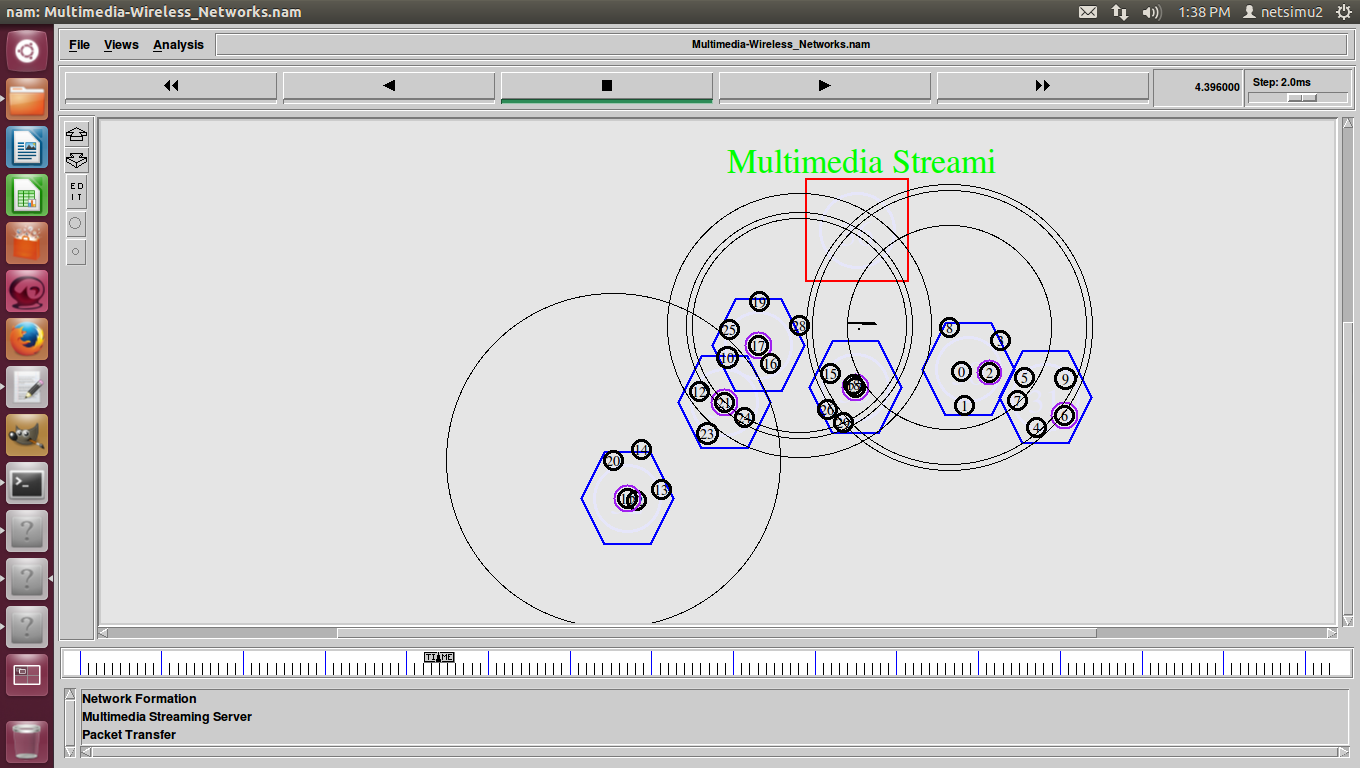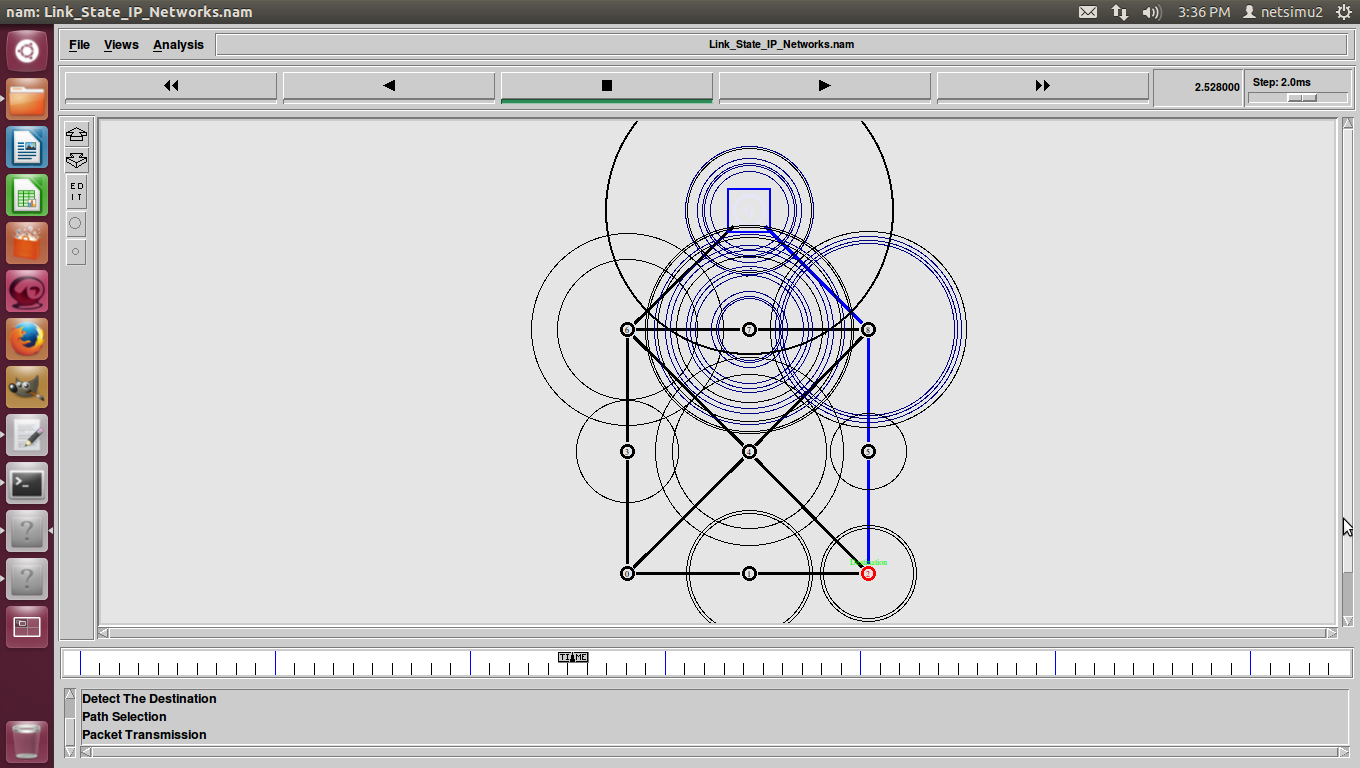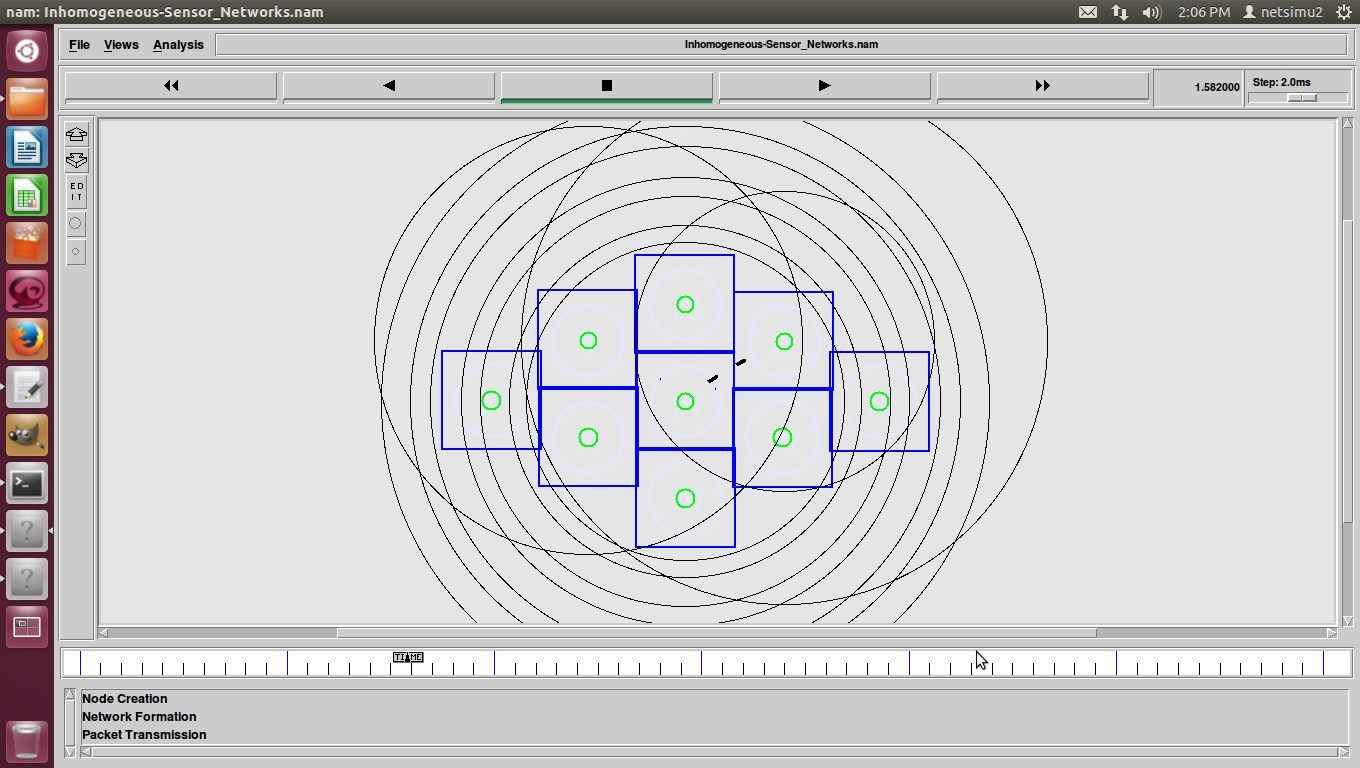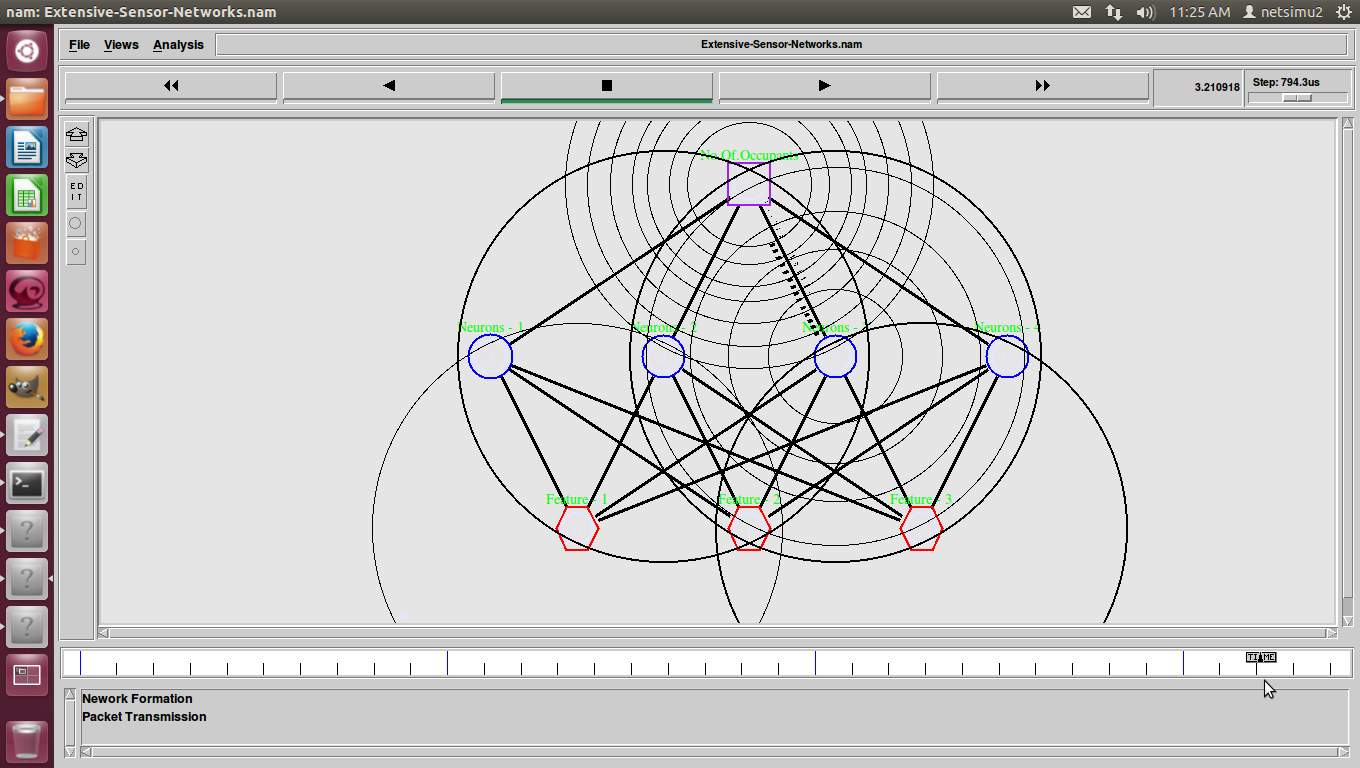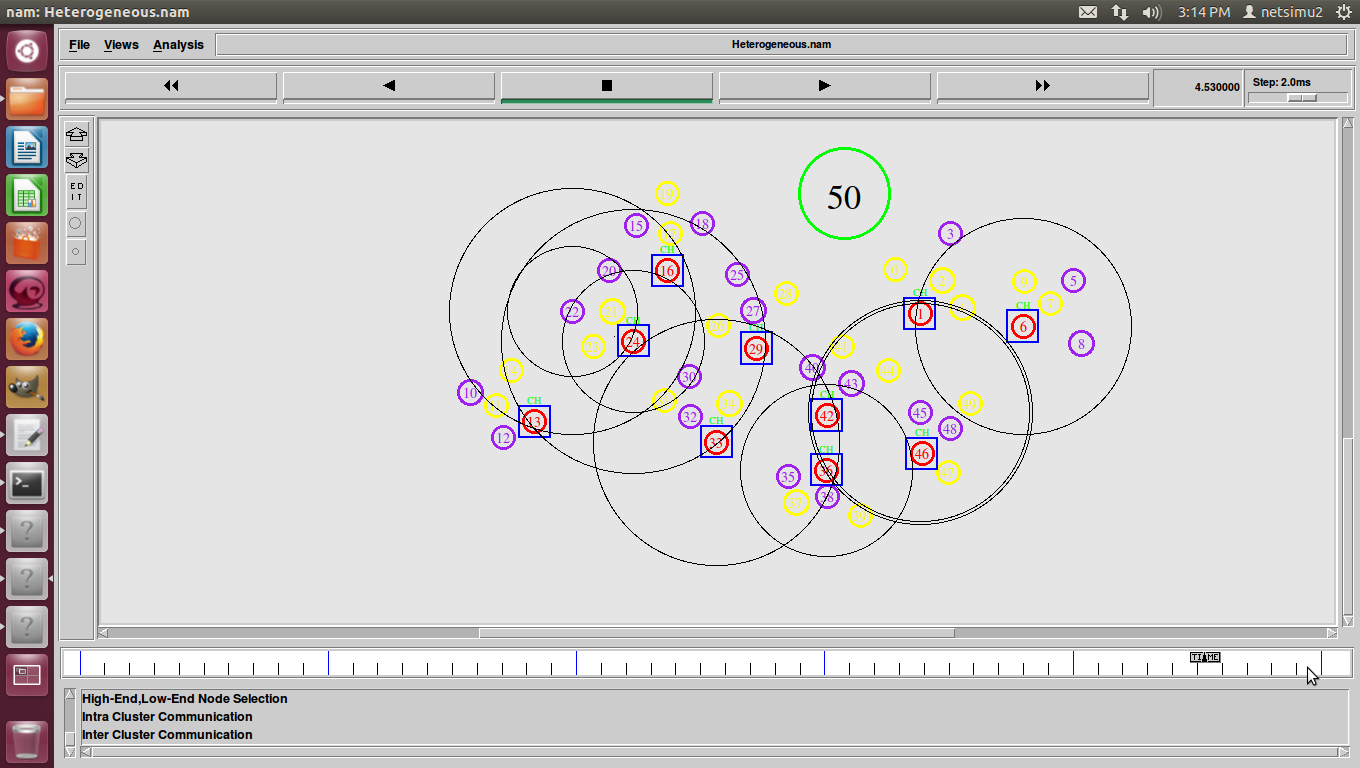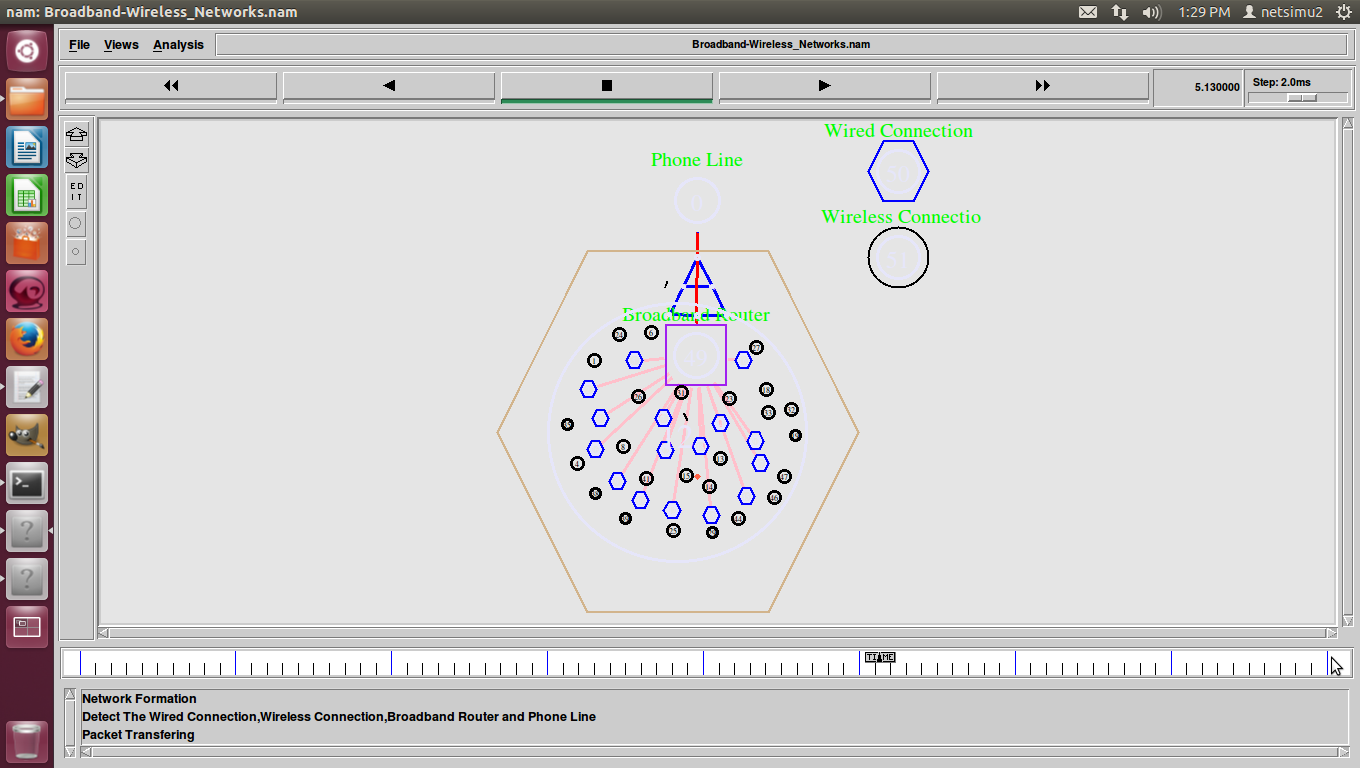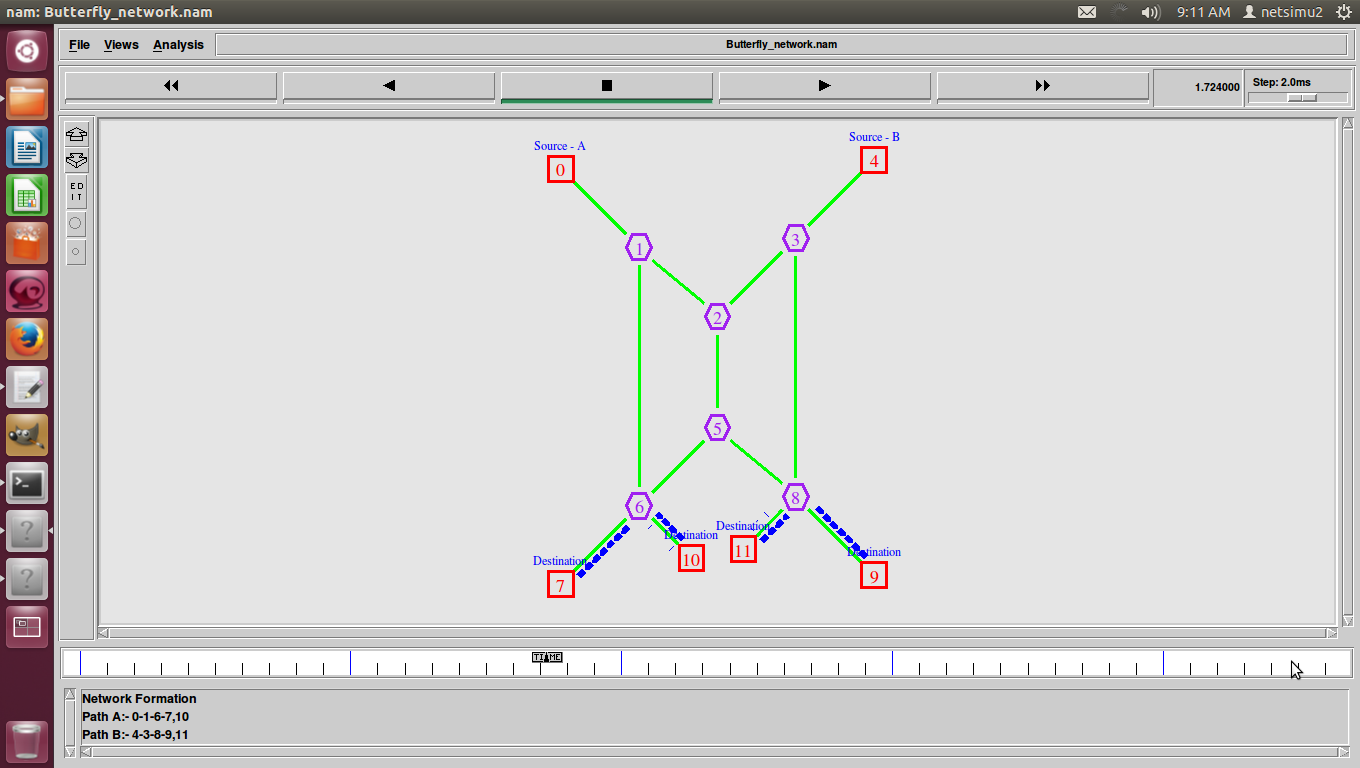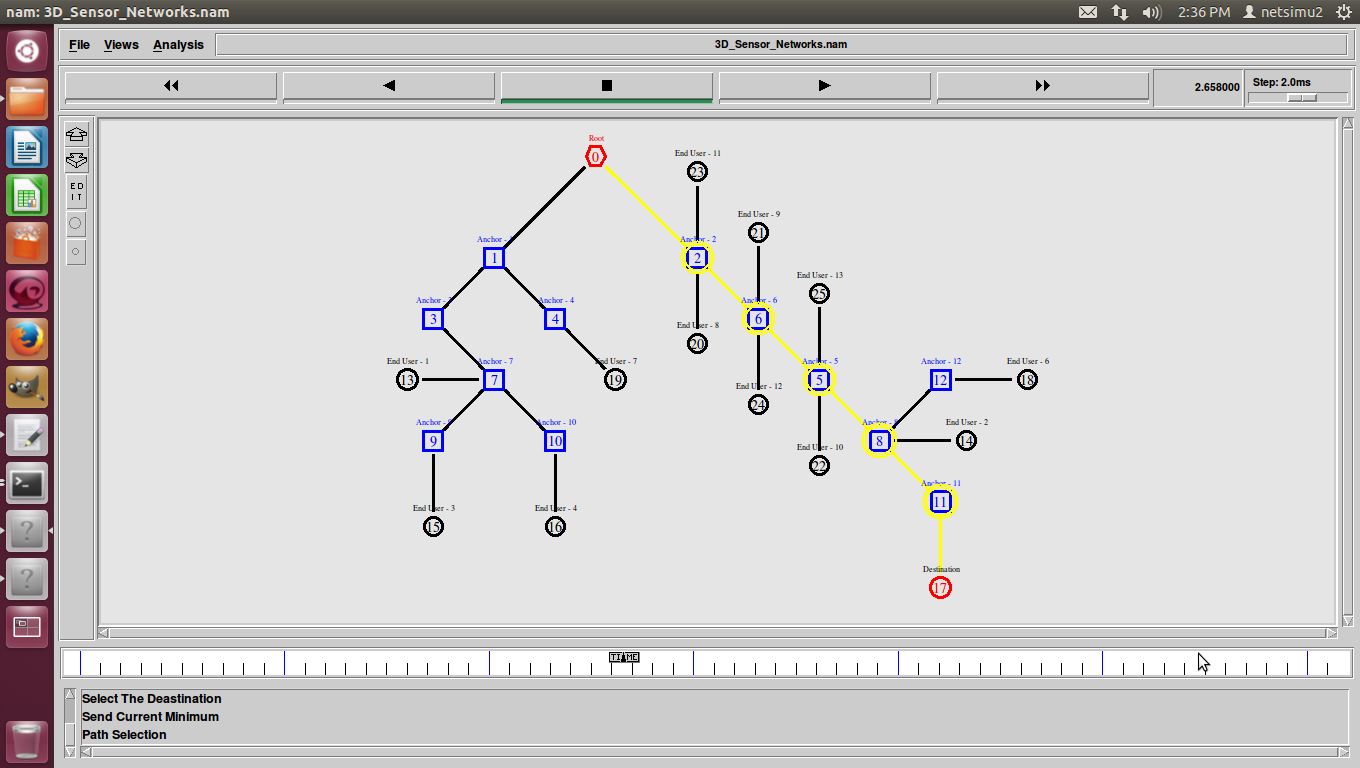NS2 Wormhole Attack – Wormhole attack is also a network layer attack that can also affect the network even without the knowledge of cryptographic techniques implemented.
What is wormhole-attack?
- In most commonly type of two ended worm-hole, one end tunnels the packets via wormhole link and also the other end, on receiving packets, replays them also to the local area.
Types of Ns-2 worm-hole attack:
- Wormhole also using packet encapsulation.
- In Wormhole using Out-of-Band Channel.
- Wormhole also using protocol deviation.
- Also, Wormhole using high power relay.
Models present in worm-hole attack:
- Hidden model.
- Packet replay.
- Also in Packet encapsulation.
- Participation model
- Out of band.
- High power transmission.
Different Models Present also in Wormhole Attacks.
Sample code for Ns-2-Wormhole-attack.
#include <errmodel.h>
#include <mac.h>
#include <ll.h>
#include <address.h>
#include <dsr/hdr_sr.h>
#define TRACE_DROP 0
int hdr_ll::offset_;
static class LLHeaderClass : public PacketHeaderClass {
public:
LLHeaderClass() : PacketHeaderClass("PacketHeader/LL",
sizeof(hdr_ll)) {
bind_offset(&hdr_ll::offset_);
}
} class_hdr_ll;
static class LLClass : public TclClass {
public:
LLClass() : TclClass("LL") {}
TclObject* create(int, const char*const*) {
return (new LL);
}
} class_ll;
LL::LL() : LinkDelay(), seqno_(0), ackno_(0), macDA_(0), ifq_(0),
mac_(0), lanrouter_(0), arptable_(0), varp_(0),
downtarget_(0), uptarget_(0), drop_on_send(0), drop_on_recv(0),
routing_packet_count(0), routing_byte_count(0),
data_packet_count(0), data_byte_count(0)
{
bind("macDA_", &macDA_);
wormhole_head.ll = NULL;
wormhole_head.id = -1;
wormhole_head.next = NULL;
}
int LL::command(int argc, const char*const* argv)
{
Tcl& tcl = Tcl::instance();
if (argc == 3) {
if (strcmp(argv[1], "ifq") == 0) {
ifq_ = (Queue*) TclObject::lookup(argv[2]);
return (TCL_OK);
}
if(strcmp(argv[1], "arptable") == 0) {
arptable_ = (ARPTable*)TclObject::lookup(argv[2]);
assert(arptable_);
return TCL_OK;
}
if(strcmp(argv[1], "varp") == 0) {
varp_ = (VARPTable*)TclObject::lookup(argv[2]);
assert(varp_);
return TCL_OK;
}
if (strcmp(argv[1], "mac") == 0) {
mac_ = (Mac*) TclObject::lookup(argv[2]);
assert(mac_);
return (TCL_OK);
}
if (strcmp(argv[1], "down-target") == 0) {
downtarget_ = (NsObject*) TclObject::lookup(argv[2]);
return (TCL_OK);
}
if (strcmp(argv[1], "up-target") == 0) {
uptarget_ = (NsObject*) TclObject::lookup(argv[2]);
return (TCL_OK);
}
if (strcmp(argv[1], "lanrouter") == 0) {
lanrouter_ = (LanRouter*) TclObject::lookup(argv[2]);
return (TCL_OK);
}
else if( strcmp( argv[1], "wormhole-peer" ) == 0 ) {
wormhole_peer* wp = (wormhole_peer*) malloc( sizeof( wormhole_peer ) );
if( !wp ) {
fprintf( stderr, "(%03d) - LL::command - error allocating memory for new wormhole peer!" );
exit(-1);
}
wp->ll = (LL *) TclObject::lookup( argv[2] );
wp->id = wp->ll->mac_->addr();
wp->next = wormhole_head.next;
wormhole_head.next = wp;
printf( "(%03d) - LL::command - added %d to wormhole peer list\n", mac_->addr(), wp->id );
return TCL_OK;
}
}
else if (argc == 2) {
if (strcmp(argv[1], "ifq") == 0) {
tcl.resultf("%s", ifq_->name());
return (TCL_OK);
}
if (strcmp(argv[1], "mac") == 0) {
tcl.resultf("%s", mac_->name());
return (TCL_OK);
}
if (strcmp(argv[1], "down-target") == 0) {
tcl.resultf("%s", downtarget_->name());
return (TCL_OK);
}
if (strcmp(argv[1], "up-target") == 0) {
tcl.resultf("%s", uptarget_->name());
return (TCL_OK);
}
if (strcmp(argv[1], "drop-on-send") == 0 ) {
drop_on_send = 1;
return TCL_OK;
}
if (strcmp(argv[1], "drop-on-recv") == 0 ) {
drop_on_recv = 1;
return TCL_OK;
}
if (strcmp(argv[1], "routing_packet_count") == 0) {
tcl.resultf("%d", routing_packet_count );
return (TCL_OK);
}
if (strcmp(argv[1], "routing_byte_count") == 0) {
tcl.resultf("%d", routing_byte_count );
return (TCL_OK);
}
if (strcmp(argv[1], "data_packet_count") == 0) {
tcl.resultf("%d", data_packet_count );
return (TCL_OK);
}
if (strcmp(argv[1], "data_byte_count") == 0) {
tcl.resultf("%d", data_byte_count);
return (TCL_OK);
}
}
return LinkDelay::command(argc, argv);
}
void LL::recv(Packet* p, Handler* /*h*/)
{
hdr_cmn *ch = HDR_CMN(p);
assert(initialized());
if(ch->direction() == hdr_cmn::UP) {
//if(mac_->hdr_type(mh) == ETHERTYPE_ARP)
if(ch->ptype_ == PT_ARP) {
//printf( "%010.6f - (%03d) - LL::recv - got ARP packet\n", Scheduler::instance().clock(), mac_->addr() );
arptable_->arpinput(p, this);
}
else {
switch( ch->ptype() ) {
case PT_AODV:
case PT_AODVUU:
case PT_MAC:
case PT_DSR:
case PT_ARP:
case PT_SEC_RT:
break;
case PT_CBR:
if( drop_on_recv ) {
static int corrupt_count = 1;
if( TRACE_DROP ) printf( "%010.6f - (%03d) - LL::recv - dropping data packet (%d)\n", Scheduler::instance().clock(), mac_->addr(), corrupt_count++ );
free( p );
return;
}break;
default:
fprintf( stderr, "%010.6f - (%03d) - LL::recv - ERROR - unknown packet type (%d = %s)!\n", NOW, mac_->addr(), ch->ptype(), packet_info.name( ch->ptype() ) );
exit( -1 );
}
uptarget_ ? sendUp(p) : drop(p);
}
return;
}
ch->direction() = hdr_cmn::DOWN;
sendDown(p);
}
void LL::sendDown(Packet* p)
{
hdr_cmn *ch = HDR_CMN(p);
hdr_ip *ih = HDR_IP(p);
int is_broadcast = 0;
int unicast_addr = -1;
int is_routing = 0;
switch( ch->ptype() ) {
case PT_AODV:
case PT_AODVUU:
case PT_MAC:
case PT_DSR:
case PT_ARP:
case PT_SEC_RT:
is_routing = 1;
break;
case PT_CBR:
if( drop_on_send ) {
static int corrupt_count = 1;
if( TRACE_DROP ) printf( "%010.6f - (%03d) - LL::sendDown - dropping data packet (%d)\n", Scheduler::instance().clock(), mac_->addr(), corrupt_count++ );
free( p );
return;
}
break;
default:
fprintf( stderr, "%010.6f - (%03d) - LL::sendDown - ERROR - unknown packet type (%d = %s)!\n", NOW, mac_->addr(), ch->ptype(), packet_info.name( ch->ptype() ) );
exit( -1 ); }
nsaddr_t dst = (nsaddr_t)Address::instance().get_nodeaddr(ih->daddr());
hdr_ll *llh = HDR_LL(p);
char *mh = (char*)p->access(hdr_mac::offset_);
llh->seqno_ = ++seqno_;
llh->lltype() = LL_DATA;
mac_->hdr_src(mh, mac_->addr());
mac_->hdr_type(mh, ETHERTYPE_IP);
int tx = 0;
switch(ch->addr_type()) {
case NS_AF_ILINK:
mac_->hdr_dst((char*) HDR_MAC(p), ch->next_hop());
if( ch->next_hop() == MAC_BROADCAST ) {
is_broadcast = 1;
}
else {
unicast_addr = ch->next_hop();
}
break;
case NS_AF_INET:
dst = ch->next_hop();
case NS_AF_NONE:
if (IP_BROADCAST == (u_int32_t) dst)
{
mac_->hdr_dst((char*) HDR_MAC(p), MAC_BROADCAST);
is_broadcast = 1;
break;
}
else {
unicast_addr = dst;
}
if (arptable_) {
tx = arptable_->arpresolve(dst, p, this);
break;
}
default:
int IPnh = (lanrouter_) ? lanrouter_->next_hop(p) : -1;
if (IPnh < 0)
mac_->hdr_dst((char*) HDR_MAC(p),macDA_);
else if (varp_)
tx = varp_->arpresolve(IPnh, p);
else
mac_->hdr_dst((char*) HDR_MAC(p), IPnh);
break;
}
if (tx == 0) {
Scheduler& s = Scheduler::instance();
if( wormhole_head.next ) {
if( is_broadcast ) {
wormhole_peer *wp = &wormhole_head;
while( wp->next ) {
wp = wp->next;
Packet *p_copy = p->copy();
hdr_cmn::access(p_copy)->direction() = hdr_cmn::UP;
s.schedule( wp->ll, p_copy, delay_ );
}
if( is_routing ) {
routing_packet_count++;
routing_byte_count += ch->size_;
}
else {
data_packet_count++;
data_byte_count += ch->size_;
}
s.schedule(downtarget_, p, delay_);
return;
}
else {
wormhole_peer *wp_curr = wormhole_head.next;
wormhole_peer *wp_prev = &wormhole_head;
while( wp_curr ) {
if( wp_curr->id == unicast_addr ) {
hdr_cmn::access(p)->direction() = hdr_cmn::UP;
s.schedule( wp_curr->ll, p, delay_ );
wp_prev->next = wp_curr->next;
wp_curr->next = wormhole_head.next;
wormhole_head.next = wp_curr;
return;
}
wp_prev = wp_curr;
wp_curr = wp_curr->next;
}
}
}
if( is_routing ) {
routing_packet_count++;
routing_byte_count += ch->size_;
}
else {
data_packet_count++;
data_byte_count += ch->size_;
}
s.schedule(downtarget_, p, delay_);
}
}
void LL::sendUp(Packet* p)
{
Scheduler& s = Scheduler::instance();
if (hdr_cmn::access(p)->error() > 0)
drop(p);
else
s.schedule(uptarget_, p, delay_);
}
Tweet







